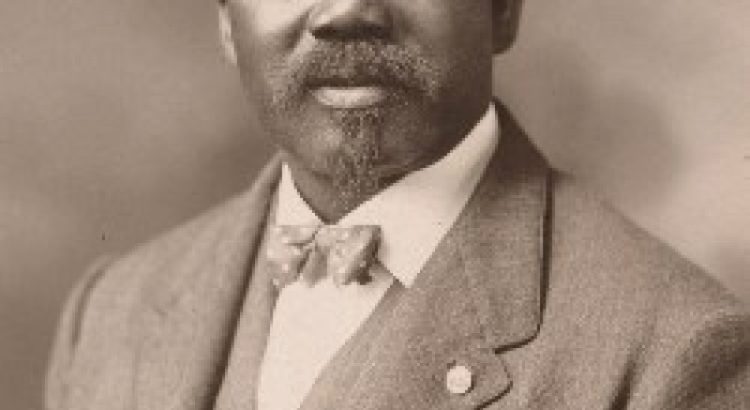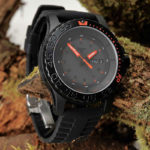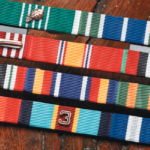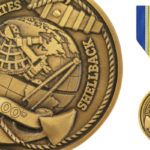Celebrating Black Military History: Medal of Honor Recipients
Throughout our country’s history, countless African American heroes have lent their voices, minds, and gifts to tell the American story. The list continues to grow yearly, from activists and abolitionists to entrepreneurs and inventors and from authors and poets to musicians and athletes.
However, there is at least one area of American history where Black heroes aren’t necessarily highlighted as much as they should be: the military. Throughout every war America has been involved in, African American military heroes have fought bravely for this country and deserve recognition for their courage and sacrifices.
To offer that recognition, let’s look at some Black history military heroes and the honors they rightfully earned.
African American Medal of Honor Recipients
There have been several Black Medal of Honor recipients across every war that has taken place since the honor’s inception in 1861, and they are some of the greatest heroes in all of Black military history.
World War II
Seven Black Medal of Honor recipients served in World War II, all of whom served in the 370th Infantry. Second Lieutenant Vernon Baker, one of the greatest Black military leaders in history, was one of those men. He led a battalion of 25 men in an assault on a German mountain stronghold between April 5<sup”>th and 6th of 1945. Only six men and Baker survived, but the mountain was ultimately secured.
It wouldn’t be until 1997 when Baker and the six surviving members of his battalion finally received Medals of Honor from then-President Bill Clinton, following a study from Shaw University that found racial bias in the Medal of Honor criteria. All seven men symbolized a turning point in African American military history, where the efforts of such military heroes would begin to be more fairly recognized by the country they served to protect.
Korean War
Due to the nature of its criteria, the Medal of Honor is often a military decoration that is bestowed posthumously. As the requirements state, every military member who has ever received one has done so because they showed “gallantry and intrepidity at the risk of his life above and beyond the call of duty.”
William Thompson was a 22-year-old private in the United States Army when he sacrificed his life to allow his platoon to retreat when they were under fire from the North Korean army on August 6, 1950. Thompson was already wounded and ordered to retreat, but he stood his ground and continued to fire back before ultimately being killed by a grenade.
Thompson was posthumously bestowed with the Medal of Honor for his exemplary bravery in the face of certain death. His mother was presented with the medal by Army General Omar Bradley on June 21, 1951.
Vietnam
Sergeant Major John L. Canley served in the United States Marine Corps between 1953 and 1981. During the Vietnam War, Canley was part of a convoy that came under sniper fire while en route to Huế to reinforce U.S. and South Vietnamese forces. When Canley’s company commander was wounded, he and Sergeant Alfredo Cantu Gonzalez assumed command and pressed the company forward.
Ultimately, the two successfully led their company to their destination, an act of bravery that earned Canley the Navy Cross in 1968. It wouldn’t be until 50 years later, on October 17, 2018, that Canley would have his decoration upgraded to the Medal of Honor. Sergeant Alfredo Cantu Gonzalez, who died in the Battle of Huế just four days after their heroic act, would receive his own Medal of Honor posthumously.
Iraq War
Alwyn C. Cashe was a senior non-commissioned officer in the United States Army who served for 17 years between 1988 and 2005. During that time, he served in both the Persian Gulf and Iraq Wars, earning various badges and decorations, including the Medal of Honor.
Cashe was riding in a Bradley Fighting Vehicle along with a number of other soldiers on October 17, 2005, when the vehicle ran into an improvised explosive device. Cashe was injured and soaked in fuel, yet he still managed to pull six soldiers to safety out of the vehicle, which had exploded into flames. In the process, the fuel covering Cashe ignited, causing 2nd and 3rd degree burns to most of his body.
Cashe’s injuries would ultimately prove to be too much. He passed away on November 8, 2005, at Brooke Army Medical Center in Texas. Initially awarded the Silver Star, it wouldn’t be until a campaign from multiple Congress members in 2019 that he would finally be posthumously bestowed the Medal of Honor he rightfully deserved.
Black Military History Heroes
The list of African American military heroes is long, and all who serve in our military are heroes in their own right. In addition to the above Black Medal of Honor recipients, other soldiers deserve mentioning, including:
Sgt. William Carney
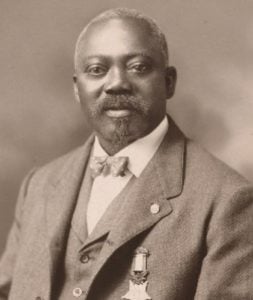
Sgt. Carney was the first of 88 African American service members to receive the Medal of Honor for refusing to allow the flag to touch the ground despite several severe injuries during the charge on Fort Wagner in the Civil War.
First Sgt. Edward Ratcliff
Born into slavery, First Sgt. Ratcliff was freed by the Union Army, with whom he enlisted and went on to participate in the Battle of Chaffin’s Farm. He was awarded the Medal of Honor for leading his company after his commander was killed.
Corporal Freddie Stowers
During World War I, Corporal Stowers took command of his platoon after his lieutenant went down while under assault from German forces. Though Stowers would ultimately be killed in action, it was not before he inspired his fellow soldiers to battle forward and drove the Germans away. Seventy years later, he would posthumously receive the Medal of Honor.
Want to Learn More About Military History?
Sign up for informational emails like this from Medals of America today.
